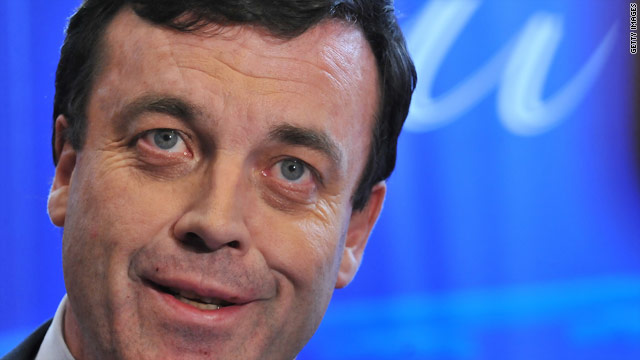Brian Lenihan, the former Irish finance minster for Fianna Fail who Friday died of pancreatic cancer aged 52, played a pivotal role in the country’s bailout, following its near economic collapse.
It was Lenihan who fronted the 2008 legislation that guaranteed full repayment of loans lent to the banks by private creditors. The guarantee was designed to create confidence and fend off a run on the banks, which were under pressure due to investments in overheated property deals.
And it was Lenihan who took center stage in navigating the country through last year’s bailout by its eurozone peers and the International Monetary Fund, the result of the country’s financial meltdown.
The decision to guarantee the banking sector’s debt – which effectively shifted the burden of repaying the loans onto the taxpayers – proved disastrous because the banks, rather than being buoyed through a liquidity crisis, were soon revealed to be in the midst of a solvency crisis. The price of saving them eventually ballooned to up to EUR70 billion, a cost which fell on the taxpayer in part because of that guarantee.
Yet Lenihan, who had been fighting the cancer since December 2009, will be remembered as far more than the man who fronted Ireland’s worst economic disaster in recent history.
Shane Moynihan, a former Fianna Fail candidate who is currently completing a PhD in political science at Trinity College Dublin, recalls asking Lenihan to meet with party supporters at the college in 2004. He said Lenihan called personally to say he had a stomach bug and was very unwell, but he turned up anyway.
In the last 18 months of his life, as he was wracked by a terminal illness and Ireland’s economy collapsed around him, he showed the same commitment to public life.
Moynihan recalls him as a rare mix of “intelligence, integrity and inspiration.” He believes Lenihan thrived on the challenge of the job. Thus, continuing in such an extraordinarily challenging role while unwell was his way of living life to the full.
Even when diagnosed, there was little talk of a replacement finance minister.
Despite decisions that were revealed, with hindsight, to be flawed, Lenihan remained in favor with the electorate, winning his seat in Dublin West during last February’s elections despite the party’s complete drubbing.
According to Moynihan, Lenihan retained respect at grassroots level because his decisions were, ultimately, driven by what was best for the country.
Lenihan was a member of a political dynasty, with his father Brian, brother Conor and aunt Mary O’Rouke serving in Irish governments. He is survived by his wife and two children.
On Friday tributes flowed from all corners. Ollie Rehn, European Union Economic and Monetary Affairs Commissioner, said Lenihan “will always be held in the highest esteem by those who worked with him in Europe.”
Fianna Fail leader Michael Martin said Lenihan “never once flinched from his public duties”, while Prime Minister Enda Kenny – leader of the rival Fine Gael party – has described Lenihan as “a decent man, a fine public representative and someone I was proud to know.”
Thank : cnn.com
